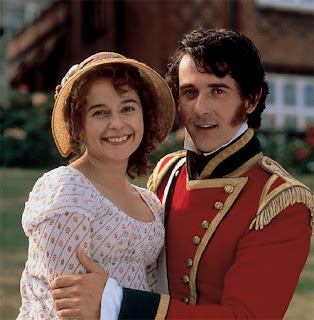About John Keats, a brief bio
 |
| John Keats, by Joseph Severn |
He studied at Enfield and had a "brisk and winning face... a favorite with all" but was very passionate, temperamental, and protective of his younger brother George who was also at the school.
Circumstances during his childhood were volatile. His father died in a riding accident when he was eight and his grandparents took charge of Keats and his siblings when their mother hastily remarried against the wishes of the family.
When she came back into their lives a few years later she'd contracted tuberculosis. He tenderly helped, cooking her food, administering medicine, and reading to her. Keats mourned her loss with an intense and prolonged grief. But during the reconciliation her presence encouraged him in his studies and he applied himself in literature, winning all the first prizes.
When the time came to choose a career he decided on medicine and was apprenticed and later trained at Guy's Hospital in London. Keats kept in touch with his friend from Enfield, Charles Cowden Clarke, who was also his mentor. They poured over George Chapman's translation of Homer which deeply moved Keats, he knew from this point that he wanted to be a poet. Most poets were of the genteel upper class, Keats was from the working but was determined to make a living and name for himself.
 |
| Fanny Brawne |
"All the good I expect from my employment this summer is the fruit of Experience which I hope to gather in my next Poem."
The critics were harsh and insulting. But it was during this time that he also met Fanny Brawne, who he fell in love with. The romance must have soothed his heart as his younger brother Tom had also succumbed to consumption and by now the symptoms were looming upon Keats' own health. But it also tormented it-- he had nothing to offer her. In a last attempt to help improve his health his friends brought him to Italy where it was hoped the warm weather would prolong his life and ease his pain.
A thing of beauty is a joy for ever:
Its loveliness increases; it will never
Pass into nothingness; but still will keep
A bower quiet for us, and a sleep
Full of sweet dreams, and health, and quiet breathing.
Its loveliness increases; it will never
Pass into nothingness; but still will keep
A bower quiet for us, and a sleep
Full of sweet dreams, and health, and quiet breathing.
Sources
Hebron, Stephen. The British Library Writers' Lives: John Keats.. s.l.: Oxford University Press, 2002. Print.
"John Keats (1795-1821) : short biography." Adnax Publications. N.p., n.d. Web. 17 June 2012. <http://www.adnax.com/biogs/jk.htm>.


Comments
Nice intro to him.